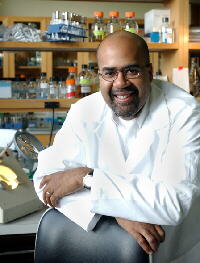“How Do Viruses Avoid Extinction?”
Dr. Paul Turner, Yale University
Hosted by: Sami Zeiders & Kirsten Marshall
While extinction is a common fate for all life on earth, many do not consider the extinction of microorganisms, such as viruses. Viruses face some of the most adverse conditions, yet how do they manage avoid extinction? In his seminar, Dr. Paul Turner examines the various fates of viruses when faced with environmental threats.
Dr. Paul Turner is an associate professor of ecology and evolutionary biology and the director for the graduate program in microbiology for Yale University School of Medicine. After pursuing a B.S. in Biological Sciences from University of Rochester, he received a Ph.D. in Microbial Ecology and Evolution from Michigan State University in 1995. Since then, he has participated in several Postdoctoral Fellowships through the NSF and NIH. In addition to his role as a professor, he is also on the committee for minority education for the American Society for Microbiology and was elected the chair of the 2013 Gordon Research Conference on Microbial Population Biology. While primarily focused on evolutionary biology, Dr. Turner’s research also explores areas such as evolutionary medicine, experimental evolution, infectious diseases, phage therapy, and virology.
For more about Dr. Turner’s current research, please visit:

Leave a Reply